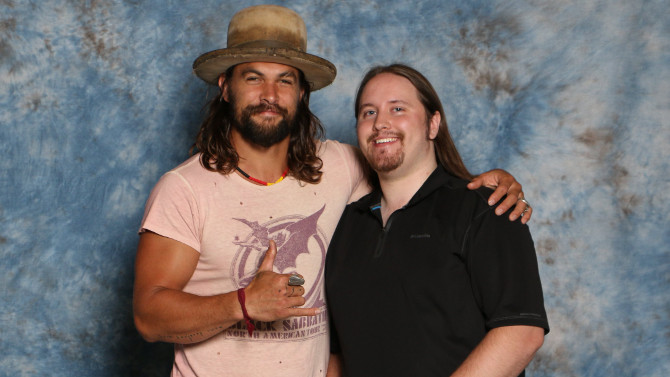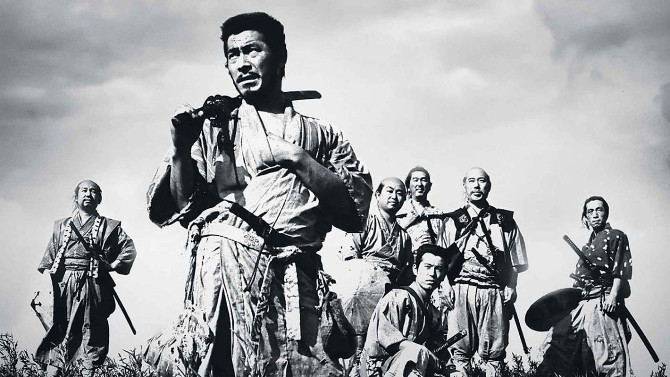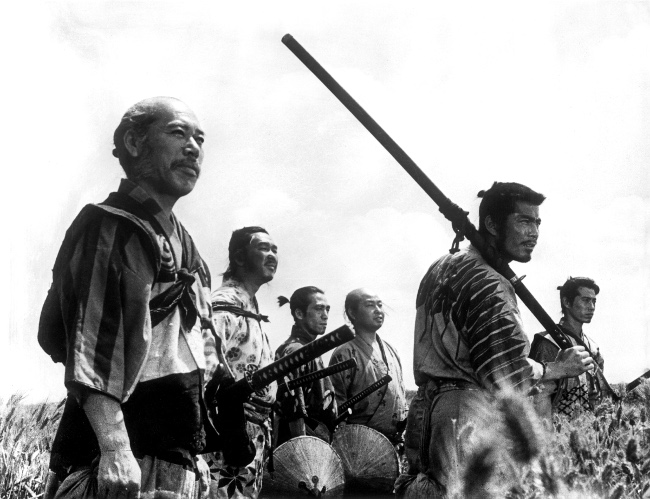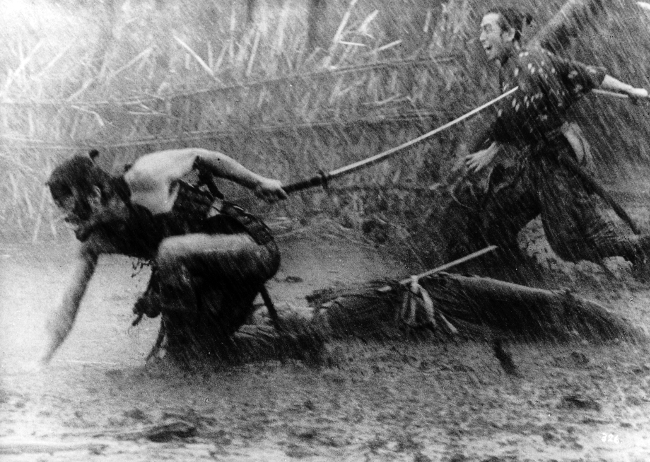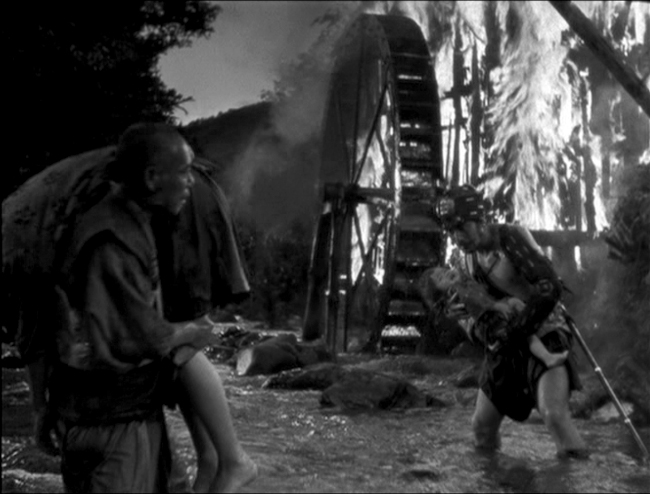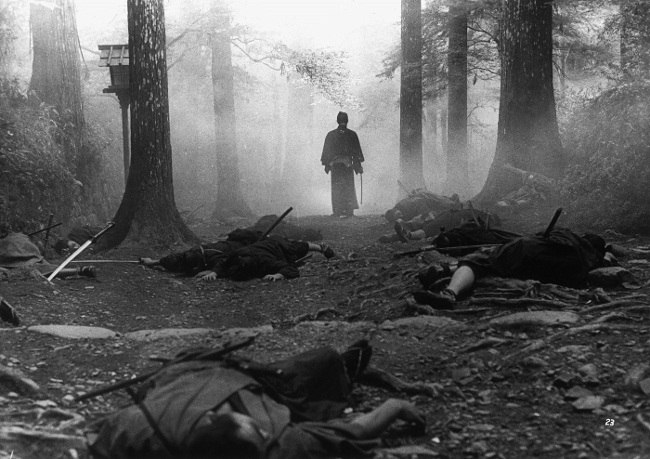With a towering warrior frame, Jason Momoa is a rare actor whose size onscreen matches his larger than life build in person (no offense to other stars, but usually, for whatever reason, height is not one of their trademarks). Yet, despite his imposing height and breadth, he is chill and zen when you meet him – a relaxed, calming presence.
Momoa has quickly built up his star status, most wholly unaware of his time on Baywatch (44 episodes, no less), often forgotten in his role on Stargate: Atlantis, or his turn in the remake of Conan the Barbarian, most thinking his take on Khal Drogo (on the surface, a savage barbarian, Momoa built a fascinating, multi-faceted character) in Game of Thrones was his first major performance. . . and since, he has made intriguing, surprising, and most importantly, quality choices with his career – splitting time between film and television. Eccentric roles in B movies like Bullet to the Head and The Bad Batch, or selecting the Canadian series Frontier (where he plays a part-Native outlaw involved in the fur trade), fit the man like a glove, personas that meld with the actor, for even his most recent win, that of Arthur Curry, better known as Aquaman (currently, as of January the 8th, 2019, the number one film in the world), could have been considered a risky bet. . . for the underwater superhero has often been the joke of the industry (remember Vincent Chase’s lack of interest in Entourage) – after all, he swims around the ocean talking to fish, yet Momoa (and director James Wan) have made the hero cool again – a slick, at times comedic warrior hero in the vein of King Arthur or Indiana Jones.
It may not surprise you that, when the conversation turned to Momoa’s favourite film, he immediately selected Akira Kurosawa’s masterpiece, Seven Samurai (1954), a story that seems to fit the mould of this present day Arcadian warrior actor. A little known historic film fact is that Seven Samurai was actually the inspiration for another classic, John Sturges’ 1960 motion picture The Magnificent Seven. . . many may not know that Momoa was originally cast as the villain in the 2016 remake, but had to drop out due to other commitments, replaced by Peter Sarsgaard (a shame for the man who said that he loves the original Japanese feature so much).
One of the most influential films of all-time, it is a three hour, twenty-seven minute epic (set in late 1500s Japan – known as the Sengoku Period, or the ‘Age of Warring States’) that finds an impoverished village of farmers under threat. Hassled by a large group of thieves, the villagers know that they will return once more during the harvesting of their barley. . . the sound of horses’ hooves like war drums approaching from the distance (echoed beautifully by Furnio Hayasaka’s score). Living on the scraps the villainous gang leave behind, it is a life of constant fear. . . of starvation, fiery destruction, rape, and murder.
Though there are no good answers, the townspeople come together to look for a solution, where a single voice rings out against the many, one Rikichi (Yoshio Tsuchiya), angered and looking to combat their foes. Fear permeates the villagers’ every being, unwilling to put their lives on the line for the cause – though, in all reality, their lives are already on the line. Visiting the Old Man (Kokuten Kôdô), the wise local elder, he agrees with Rikichi, proclaiming that they must head out and find four samurai.
With no money and only food to offer, Rikichi and the team are fortunate enough to woo wise Kambei Shimada (Takashi Shimura), a ronin, or wandering samurai with no master, who, after hearing the layout of the locale, realizes that they will need seven master swordsmen.
With Shimada’s help, they are able to hire Gorobei Katayama (Yoshio Inaba) – a clever planner and master archer; Shichiroji (Daisuke Katô) – a dear old friend of Shimada’s who has survived many a battle; Heihachi Hayshida (Minoru Chiaki) – a frank, lighthearted individual who will bring levity during the difficult times ahead; Kyuzo (Seiji Miyaguchi) – a brilliant swordsman who is the strong but silent type; Katsushiro Okamoto (Isao Kimura) – a young, wealthy warrior who has yet to be tested; and Kikuchiyo (Toshirô Mifune) – a wildcard supposed samurai who is quick to laugh and anger. . . the rest fear his lack of restraint, unwilling at first to let him join (though he constantly follows, finally winning them over). Together they form the magnificent seven, oops, I mean seven samurai – six of the seven are based on historical samurai.
Returning to the village, they are not greeted warmly. . . from different castes (and having been at odds with the samurai in the past), many of the townsfolk fear that they will eat all of their food and threaten their daughters’ honourable morals. Though the samurai soon prove their worth, helping unite the village and plan their defences in order to protect their homes. . . the seven becoming attached to Rikichi and the rest of the small Populus, especially the inexperienced Okamoto, who has fallen for Shino (Keiko Tsushima), a farmer’s daughter who has been disguised as a boy to evade the dangers of being a vivacious young woman.
A visual splendour, it is immediately evident why the villagers are so proud of their home. . . the rolling waters of a river, the mesmeric calming movement of the vegetation in the wind, a peaceful grove of white flowers, even the rain uniformly pouring off of the rooftops, a beauty in its quaint design and proximity to nature.
Likewise, the weather has its own personality. Early on, a light breeze is noticeable, the wind slowly picking up over the course of the film, leaves swirling, heavy gusts throwing dust at the samurai as they train the villagers, only to become an overwhelming stillness as the battle approaches, an unnerving calm before the storm. For when the fighting begins, rain pours down in sheets, the elements as angry as the dangerous foes.
And, for those willing to listen, there is a sage message at its heart. One of wisdom, logic, and reason. The Old Man, through years of life lessons, tells his fellow men enlightened messages such as, “your head is on the block, and all you think of are your whiskers”, or “find hungry samurai. Even bears come down from the mountains when they are hungry”, while Shimada, a man who does his duty, expounds his knowledge on selfishness, glory, and other flawed objectives. . . Shimada’s lamentable final words also telling of a dying culture, a change that will bring with it the end of an old and noble way. . . firearms the way of the future.
To return once more to Kurosawa’s visuals, there is a pure essence to the way he tells his story. Moments really hit you – the final billow of a dead man’s cloak (as if his soul is leaving its vessel), a few kernels of rice spilled on the floor after the rest has been stolen (the loss of so very much in times of need), the fiercely burning homes of the townspeople that sit on the other side of the river (unable to be protected), or the long takes in which the camera follows the action unfolding (instead of being over-cut), arguably the most powerful image is the film’s final shots – without giving too much away, it symbolizing the battle, our seven heroes, and the end of an era.
So many elements of the action movie stem from this feature – the use of slow motion, telephoto lenses (that allowed the cameras to zoom in on the action), the reluctant hero (his opening, an unrelated to the main plot action sequence that shows his character), assembling a team to complete a mission, the way the weather echoes the action onscreen, the levity that is so vital in a tense piece, the set being constructed to be historically accurate in the Izu Peninsula (instead of at Toho Studios), and so many other things brought together for the first time to create the original action epic. Also George Lucas’s favourite film, it was this and another one of Kurosawa’s classics, The Hidden Fortress, that influenced him when making Star Wars – just another example of its trendsetting nature.
A brilliant piece of storytelling (from the very beginning, there is something that tells you that you are in for something special), Seven Samurai does not feel anywhere near its runtime – a signifier of its tight construct, engaging story, sharply shot action, and everything in between. . . while its length better enables us to become one with the samurai and villagers – seeing how they grow and evolve, become emboldened, fall in love, those close bonds that can only grow with time, to live and die. Encompassing his considerable knowledge, Kurosawa fuses the American western with Japanese culture (dutiful gunslingers with swords combined with the four natural elements), it is no real surprise that it translated so well as an American remake (or why audiences love it in North America), and has been praised by so many of the best – George Lucas (Star Wars), Sidney Lumet (Dog Day Afternoon), Arthur Penn (Bonnie and Clyde), William Wyler (Roman Holiday), of course Jason Momoa, and so many others. So, join this noble cause and experience Seven Samurai first hand, it is a unique type of victory.

